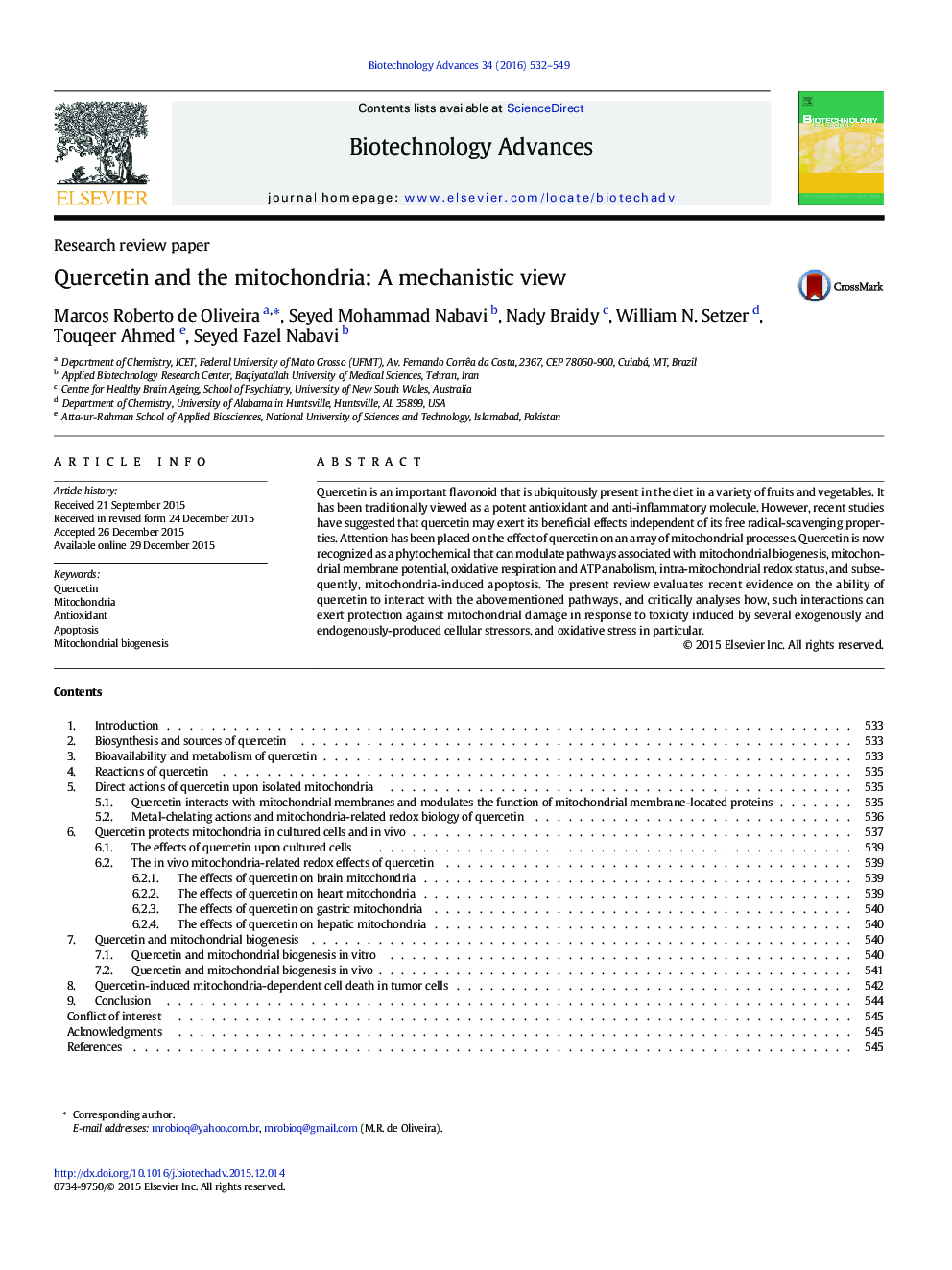| Article ID | Journal | Published Year | Pages | File Type |
|---|---|---|---|---|
| 6451205 | Biotechnology Advances | 2016 | 18 Pages |
Quercetin is an important flavonoid that is ubiquitously present in the diet in a variety of fruits and vegetables. It has been traditionally viewed as a potent antioxidant and anti-inflammatory molecule. However, recent studies have suggested that quercetin may exert its beneficial effects independent of its free radical-scavenging properties. Attention has been placed on the effect of quercetin on an array of mitochondrial processes. Quercetin is now recognized as a phytochemical that can modulate pathways associated with mitochondrial biogenesis, mitochondrial membrane potential, oxidative respiration and ATP anabolism, intra-mitochondrial redox status, and subsequently, mitochondria-induced apoptosis. The present review evaluates recent evidence on the ability of quercetin to interact with the abovementioned pathways, and critically analyses how, such interactions can exert protection against mitochondrial damage in response to toxicity induced by several exogenously and endogenously-produced cellular stressors, and oxidative stress in particular.
